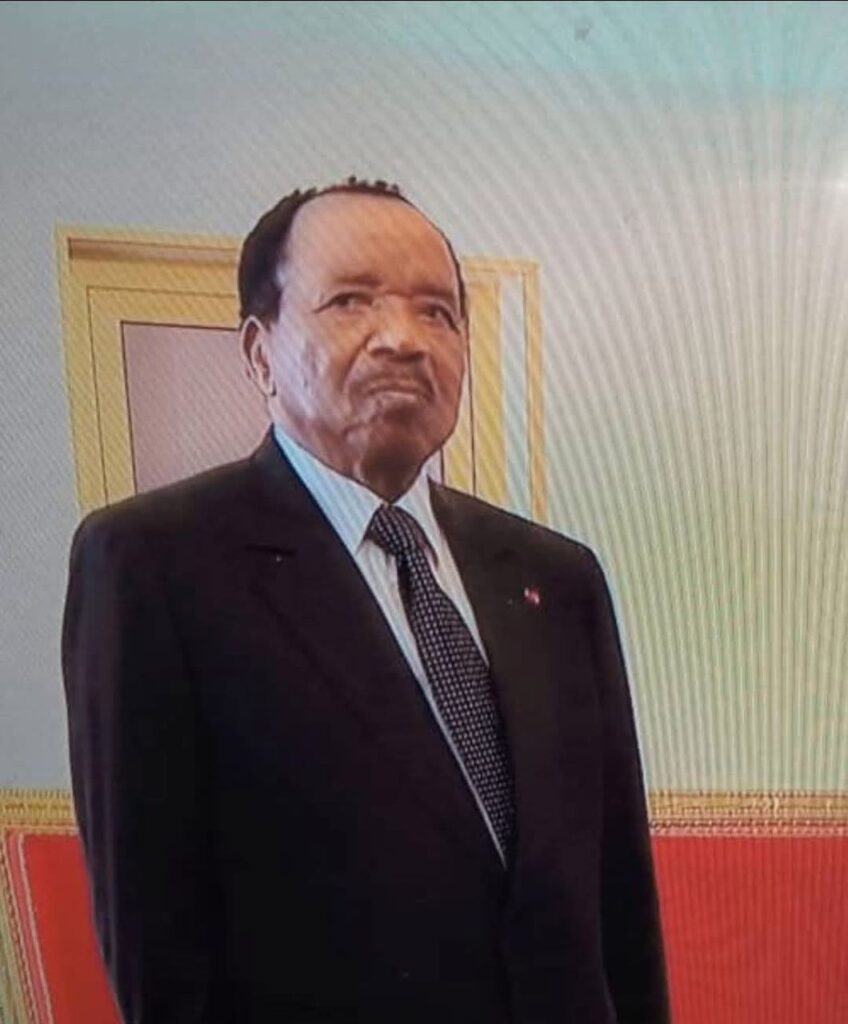As Cameroon holds its breath ahead of the official proclamation of the October 12 presidential election results, one question hangs heavily in the air: Who betrayed Paul Biya? Is it the people he has governed for over four decades, or the government ministers who have long benefited from his power?
According to leaked results, President Paul Biya is said to be leading with over 50% of the votes cast. Yet, across the nation, this news has been met not with celebration, but with anger, disbelief, and suspicion. For many Cameroonians, the numbers simply don’t add up. The voices from polling stations and the digital evidence circulating on social media tell a different story—one that favors opposition candidate and former minister, Issa Tchiroma Bakari, who claims to have won a commanding majority in strategic divisions.
But the real story here isn’t just about numbers—it’s about trust, betrayal, and the widening gap between a people and their government.
For decades, President Biya has preached peace, stability, and development. He has promised opportunities for the youth, empowerment for women, and modernization for the nation. On paper, billions have been spent on projects designed to fulfill those promises. In practice, most citizens see little change. Roads remain broken, hospitals under-equipped, schools underfunded, and jobs scarce. Somewhere along the way, the system designed to serve the people began serving itself.
If President Biya feels betrayed, perhaps it is not by the people, but by those around him—the loyal ministers, party elites, and regional barons who turned governance into personal business. The same individuals who sing his praises by day but plunder the nation’s wealth by night. They have used his name to justify corruption, oppression, and manipulation of state institutions.
Now, the people have spoken through the ballot box—or at least, they thought they did. Many citizens believe the October 12 election was their one peaceful opportunity to demand change. Voters showed rare unity, queuing for hours, recording results on their phones, and sharing evidence online. For the first time in years, Cameroonians—across regions, tribes, and political affiliations—seemed ready to take back ownership of their democracy.
Yet, once again, the results appear to be slipping into the shadow of political control. ELECAM, the electoral body, and the Constitutional Council—institutions meant to protect democracy—are now being viewed as extensions of the ruling party rather than guardians of the people’s will. The country waits anxiously for the Council’s announcement, but few believe the outcome will truly reflect what happened at the polls.
Already, pockets of post-election violence have been reported. Security forces are deployed nationwide. The air is thick with uncertainty. Cameroon cannot afford another crisis like the Anglophone conflict, whose roots lie in the government’s refusal to listen to legitimate grievances before they exploded into a full-blown war.
At 93, Paul Biya stands at a historic crossroads—not just for himself, but for Cameroon. The legacy he leaves behind will depend not on the election results, but on how he responds to them. If he truly loves Cameroon, he must listen to the people, not the whispers of those who profit from his power.
So, who betrayed Paul Biya? Maybe it’s not the people after all. Maybe it is the very system he built—one that has become too corrupt, too insulated, and too afraid of change to tell him the truth.
History will not remember who won this election by percentage. It will remember who stood for the truth when the nation stood on the brink.

